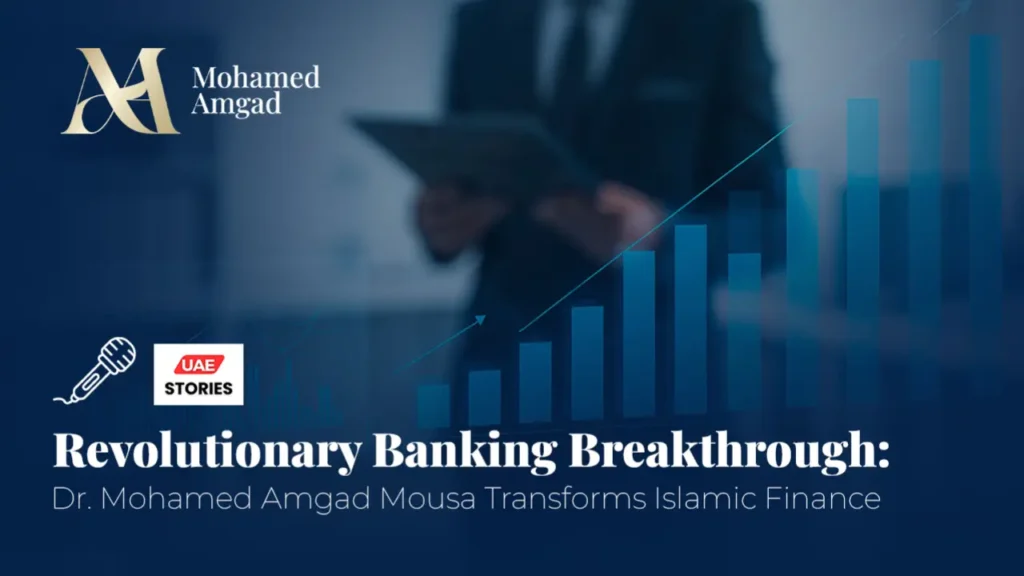Dr. Mohamed Amgad Mousa Leads the Global Transformation of Islamic Finance: A Visionary at the Crossroads of Innovation and Ethics
In an era where finance is being reshaped by technology, few leaders have bridged innovation and Islamic finance ethics as successfully as Dr. Mohamed Amgad Mousa — Deputy CEO of Al Dar Exchange, Qatar.
With over 15 years at Al Dar, Dr. Mousa has been instrumental in merging conventional banking systems with Islamic finance principles, pioneering digital transformation, and promoting financial inclusion across the GCC.
As UAE Stories noted, his recent research — “Transitioning Conventional Banks to Islamic Finance” — has sparked conversations across the global financial sector for its groundbreaking framework and policy recommendations.

From Practitioner to Thought Leader: The Motivation Behind the Research
Dr. Mousa’s research journey began with a simple observation: Islamic finance is growing rapidly, yet the transition from conventional systems remains complex.
Over the last two decades, Islamic finance has expanded from a niche market into a $3 trillion global industry. However, many banks attempting conversion struggle with structural, operational, or regulatory challenges.
“My goal was to understand what separates success from failure,” Dr. Mousa explained. “Having built Qatar’s first FinTech app and worked daily in foreign exchange, I’ve seen how deeply Islamic principles shape financial operations.”
The Five-Pillar Framework for Successful Conversion
At the heart of Dr. Mousa’s research lies his Five-Pillar Framework, a roadmap for conventional banks seeking a seamless transition to Islamic finance.
1. Regulatory Infrastructure
Clear, Shariah-compliant laws and tax neutrality form the backbone of successful conversion.
2. Shariah Governance
Independent boards ensure compliance is authentic and transparent, fostering stakeholder trust.
3. Operational Systems
Legacy IT infrastructure must be redesigned to accommodate profit-sharing and non-interest mechanisms.
4. Liquidity Management
Islamic banks rely on Sukuk markets and Islamic interbank facilities, avoiding interest-bearing tools.
5. Transparency
Open disclosure of Shariah audits and profit allocations enhances credibility and investor confidence.
“Ignoring even one pillar weakens the entire transformation,” Dr. Mousa cautions. “A conversion is only as strong as its weakest link.”
Learning from Global Success Stories
Drawing insights from Malaysia, Indonesia, and GCC nations, Dr. Mousa’s study identifies two often-overlooked success factors:
Human Capital and Education
Malaysia’s leadership in Islamic finance stems from heavy investment in academic and vocational training. Dr. Mousa highlights that no transformation can succeed without staff who understand both modern finance and Shariah principles.
Patience in Profitability Adjustment
He notes that most banks face a temporary 12–24-month profitability dip during conversion, but by the third year, many reach profit parity or outperform conventional banks due to stronger stability and customer loyalty.
Islamic Finance: Proven Resilience in Crises
The research also underscores the resilience of Islamic finance during global downturns.
During the 2008 financial crisis, Islamic banks — bound by asset-backed models — avoided exposure to speculative derivatives.
“Islamic finance is inherently tied to real economic activity,” Dr. Mousa explained. “It avoids risky instruments and promotes stability during financial shocks.”
This resilience was evident again during COVID-19, where Al Dar’s FinTech-enabled systems ensured uninterrupted access to Shariah-compliant financial services.
Technology: The Game Changer
Dr. Mousa believes technology and Islamic ethics are natural allies.
AI, blockchain, and cloud computing are transforming compliance, making real-time Shariah validation possible.
At Al Dar, innovations such as self-service kiosks, digital wallets, and mobile banking apps have made Islamic financial services accessible 24/7, especially for underserved communities.
“Technology doesn’t replace governance — it enables it at scale,” he notes, emphasizing that automation strengthens ethical transparency rather than diminishing it.
Aligning Islamic Finance with ESG Goals
Dr. Mousa’s vision goes beyond religion — it’s about ethical capitalism.
He points out that Islamic finance aligns perfectly with modern Environmental, Social, and Governance (ESG) frameworks.
Green Sukuk, ethical portfolios, and responsible investment policies all stem from the same Islamic values of avoiding harm, promoting social good, and supporting real economic growth.
“Islamic finance and ESG are not separate movements,” he asserts. “They converge toward a single idea: responsible, sustainable banking.”
A Four-Phase Roadmap for Transformation
Dr. Mousa’s four-phase roadmap provides a step-by-step model for institutions transitioning to Islamic finance:
1️⃣ Phase 0 – Diagnostic: Assess readiness, secure regulatory engagement, and build board-level commitment.
2️⃣ Phase 1 – Governance: Establish independent Shariah boards and licensing protocols.
3️⃣ Phase 2 – Operational Migration: Redesign products, retrain staff, and digitize workflows.
4️⃣ Phase 3 – Audit & Consolidation: Verify compliance, disclose results publicly, and optimize systems.
He emphasizes that the entire process takes 3–5 years — rushing it risks structural failure.
Qatar: A Rising Hub for Islamic FinTech
Qatar, according to Dr. Mousa, has the regulatory strength and innovation potential to become a global Islamic finance hub.
With robust governance, sovereign wealth support, and leading-edge digital adoption, the nation is setting benchmarks for sustainable, ethical finance.
At Al Dar Exchange, his work demonstrates that compliance and innovation can thrive together — transforming Islamic finance from a niche market into a scalable, global model.
The Future of Ethical Banking
Looking forward, Dr. Mousa envisions a financial future where AI-driven Shariah compliance, blockchain Sukuk, and charitable digital wallets redefine inclusivity and ethics.
“Growth is inevitable,” he concludes. “The question is whether institutions are preparing strategically or reacting passively.”
His work offers a blueprint for resilient, transparent, and sustainable finance — proving that innovation and faith-based integrity can coexist.
About Dr. Mohamed Amgad Mousa
Dr. Mousa is an internationally recognized FinTech innovator, academic researcher, and financial strategist. As Deputy CEO of Al Dar Exchange, he continues to lead the Gulf’s financial transformation — bridging the gap between technology, Shariah governance, and customer experience.
His groundbreaking research and leadership continue to shape the future of Islamic finance and ethical banking worldwide.
Media Contact
For interviews, features, or speaking requests:
📧 info@mohamedamgad.com
🌐 Check Article: https://uaestories.com/dr-mohamed-amgad-mousa-transforms-islamic-finance/
📥 Download Press Kit: Dr. Mohamed Amgad Mousa – Media Profile PDF
